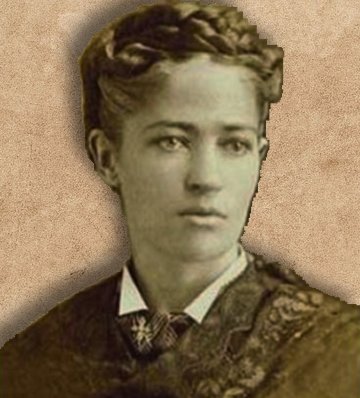Crazy Days
They Changed Women's Lives
They Changed Women's Lives
Throughout history women have toiled alongside men to make their lives better. Unfortunately, few women received credit for their ingenuity until the 19th century (the 1800s). Thanks in part to American intellectual property rights laws, women finally began receiving credit for their inventions.
It wasn't always easy, though. Even if a woman could procure a patent, she was still competing against men in a business world built by men for men. It's amazing just how much women have accomplished despite all the odds stacked against them.
She Invented the Dishwashing Machine
Josephine Cochrane was an American inventor and entrepreneur. She was born in Illinois in 1839 and is best known for inventing the first commercially successful automatic dishwasher in 1886. Her dishwasher was a significant improvement over previous manual dishwashing methods and revolutionized the way people cleaned dishes.
Cochrane received a patent for her invention and went on to establish a successful dishwasher manufacturing company. She is considered a pioneering figure in the field of household appliances and her invention remains an essential household appliance to this day.
 Josephine Cochrane solved a difficult engineering problem: how to wash dishes without breaking them. She thought to use pressurized water.
Josephine Cochrane solved a difficult engineering problem: how to wash dishes without breaking them. She thought to use pressurized water.Josephine Cochrane was born into a wealthy family in Illinois, USA. Her grandfather, John Fitch, was an inventor and engineer who is credited with inventing the steamboat. Her father, John Cochrane, was also a successful businessman. Josephine grew up in a family with a strong tradition of innovation and entrepreneurship, which likely influenced her own interests and accomplishments.
Not much is known about her personal life, including details about her family, marriage or children. However, her invention of the automatic dishwasher has had a lasting impact on the household appliance industry and she is remembered as a pioneering figure in this field.
Josephine Cochrane's dishwasher was a revolutionary invention that changed the way people cleaned their dishes. It was the first commercially successful automatic dishwasher and paved the way for the modern dishwashers we have today.
Cochrane's dishwasher was a metal container with a rack for dishes and a motor-driven mechanism that circulated hot water and soap over the dishes to clean them. This was a significant improvement over the manual dishwashing methods of the time, which were time-consuming and labor-intensive.
Cochrane received a patent for her invention in 1886 and went on to establish a successful dishwasher manufacturing company. Her dishwasher was initially marketed to large households, hotels, and restaurants, where the need for efficient and hygienic dishwashing was high. However, its popularity soon spread, and it became a household staple in many homes.
Today, Cochrane's invention is considered an essential household appliance and has undergone many improvements and modifications over the years, but the basic principles remain the same. Josephine Cochrane's dishwasher continues to be widely used and remains a testament to her ingenuity and entrepreneurial spirit.
They Helped Invent Clothes Washing Machines
Many women have contributed to the invention and development of the washing machine throughout history. Some of the notable contributions include:
Mary Kenner: An African American inventor who filed a patent for a combination clothes-wringer and washer in 1897.
A. Maria Becker: A German inventor who patented a washing machine in 1851 that used a drum-like mechanism.
Florence Parpart: An American inventor who patented a washing machine in 1889 that used a drum and wringer mechanism.
Hazel Briggs Reid: An African American woman who invented an efficient washing machine drum in 1892.
Anna May Wilkinson: An Australian inventor who patented a washing machine in 1922 that was designed to make the task of washing clothes easier for women.
Hazel Briggs Reid was an African American inventor who is credited with inventing the washing machine drum. She was born in 1892 and was granted a patent for her invention in 1929. Her washing machine drum made it possible to wash clothes more efficiently and effectively, as it allowed for clothes to be washed in a rotating drum instead of being scrubbed by hand. Hazel Briggs Reid's invention was an important development in the history of household appliances and helped to improve the lives of many people by making the task of washing clothes easier and more convenient.